Rhodium Group
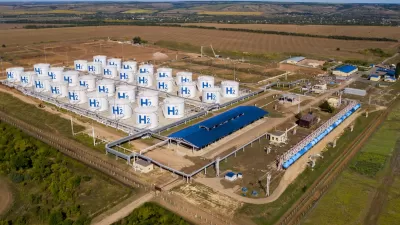
First Federal Funding for Hydrogen Hubs Awarded to California and Pacific Northwest
The U.S. Department of Energy announced on July 17 that the first grant to build the nation's seven proposed 'hydrogen hubs' would go to California. The ultimate goal is to decarbonize transportation fuels used in port operations.
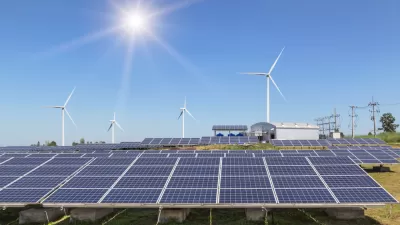
U.S. Greenhouse Gas Emissions Continue Post-Pandemic Rebound in 2022
Renewables generated more electricity than coal in 2022, according to preliminary estimates. Greenhouse gases still rose, however, due mostly to increased emissions from buildings.
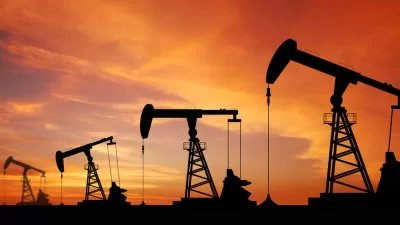
Sanctioning Russian Energy Exports
European leaders chose not to join the U.S. in an embargo of Russian energy products largely because of dependence on natural gas. Similarly, the world needs the 11% of crude oil that Russia exports. What can the U.S. do to lessen this dependence?
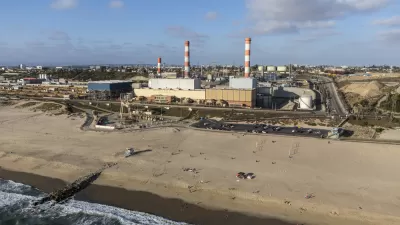
U.S. on Track to Reduce Emissions by 2030, Report Says
The latest edition of the Rhodium Group's "Taking Stock" report accounts for the uncertainties of Covid-19 recovery while charting the trends in U.S. greenhouse gas emissions.

Economic Shock Lowers U.S. Greenhouse Gas Emissions Below 1990 Levels, Report Says
The decrease in U.S. economic activity during the pandemic year of 2020 reduced the country's greenhouse gas emissions by 10.3 percent.
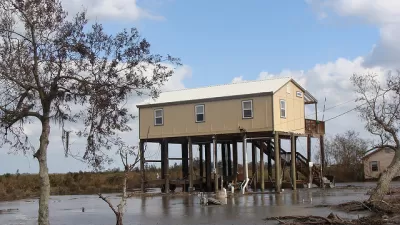
Mapping the Climate Change Future of the United States
The regions of the United States that have provided the most hospitable to human life and agriculture on the continent will likely be abandoned in a future altered by climate change, according to this interactive mapping project.

The Cost of COVID Carbon Reduction: $3,200-$5,400 a Ton
The short-term environmental effects of the pandemic economic downturn are clear in the amount of carbon emissions that have been removed from the economy. The long-term effects, however, are subject to a number of contingencies.
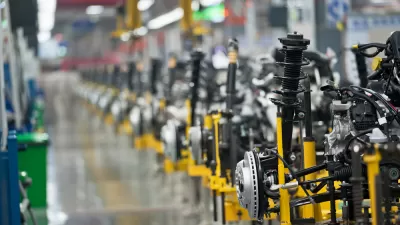
Auto Industry Reluctant to Support Trump Plan to Freeze Fuel Economy Standards
The auto industry appears to be balking at supporting the Trump administration's plan to freeze vehicle emission standards at 2020 levels even though they initially asked Trump to loosen the rigorous Obama-era fuel efficiency rule that goes to 2026.
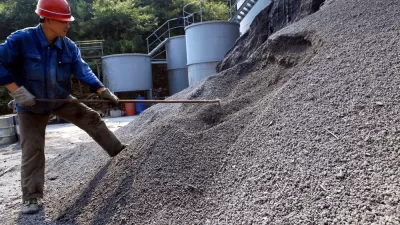
U.S. Carbon Emissions Increased Last Year After a Three-Year Decline
The sobering news comes from the Rhodium Group, a research firm that tracks CO2 emissions. The preliminary estimate is the third in two months to show an increase in 2018, attributing it to an improved economy and Trump's regulation rollbacks.

Greenhouse Gas Emissions Continue to Decrease in the U.S.
President Trump and his cabinet have been busy rolling back environmental regulations and promoting coal burning, and now they claim credit for a reduction in greenhouse gas emissions last year even greater than in 2016.
Trump Administration Proposes to Freeze Fuel Economy Standards at 2020 Level
On Thursday, the U.S. DOT and U.S. EPA announced one of the Trump administration's most consequential rollbacks of environmental and efficiency regulations that will have a detrimental effect on climate change, air pollution, and oil consumption.
Urban Design for Planners 1: Software Tools
This six-course series explores essential urban design concepts using open source software and equips planners with the tools they need to participate fully in the urban design process.
Planning for Universal Design
Learn the tools for implementing Universal Design in planning regulations.
planning NEXT
Appalachian Highlands Housing Partners
Mpact (founded as Rail~Volution)
City of Camden Redevelopment Agency
City of Astoria
City of Portland
City of Laramie


































